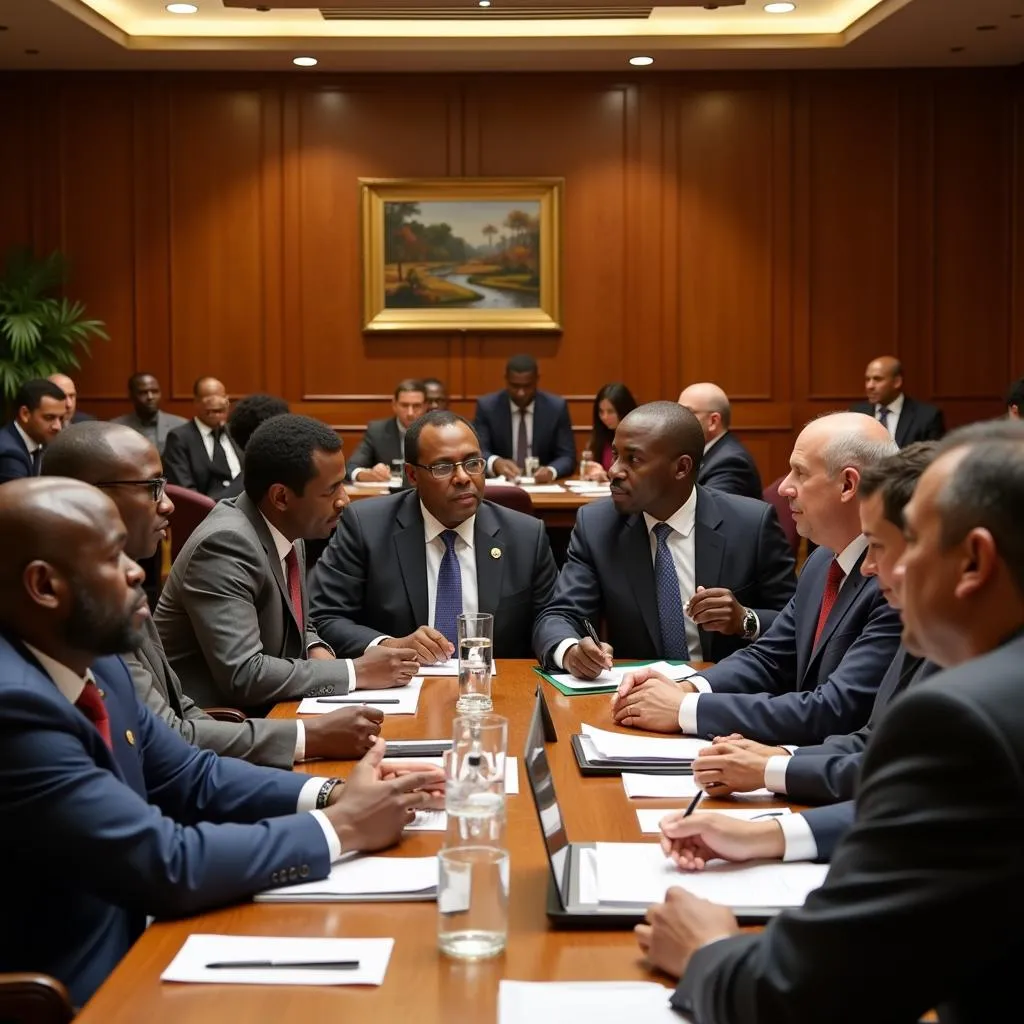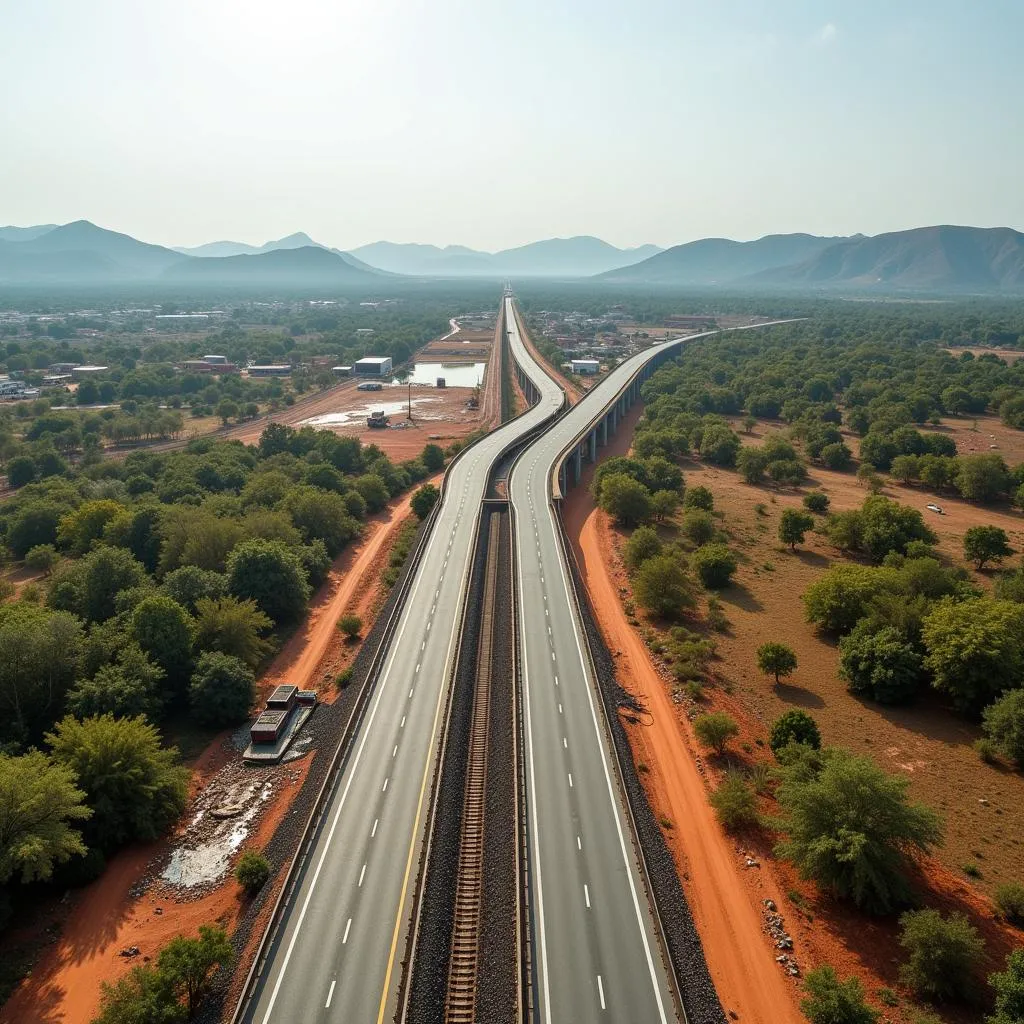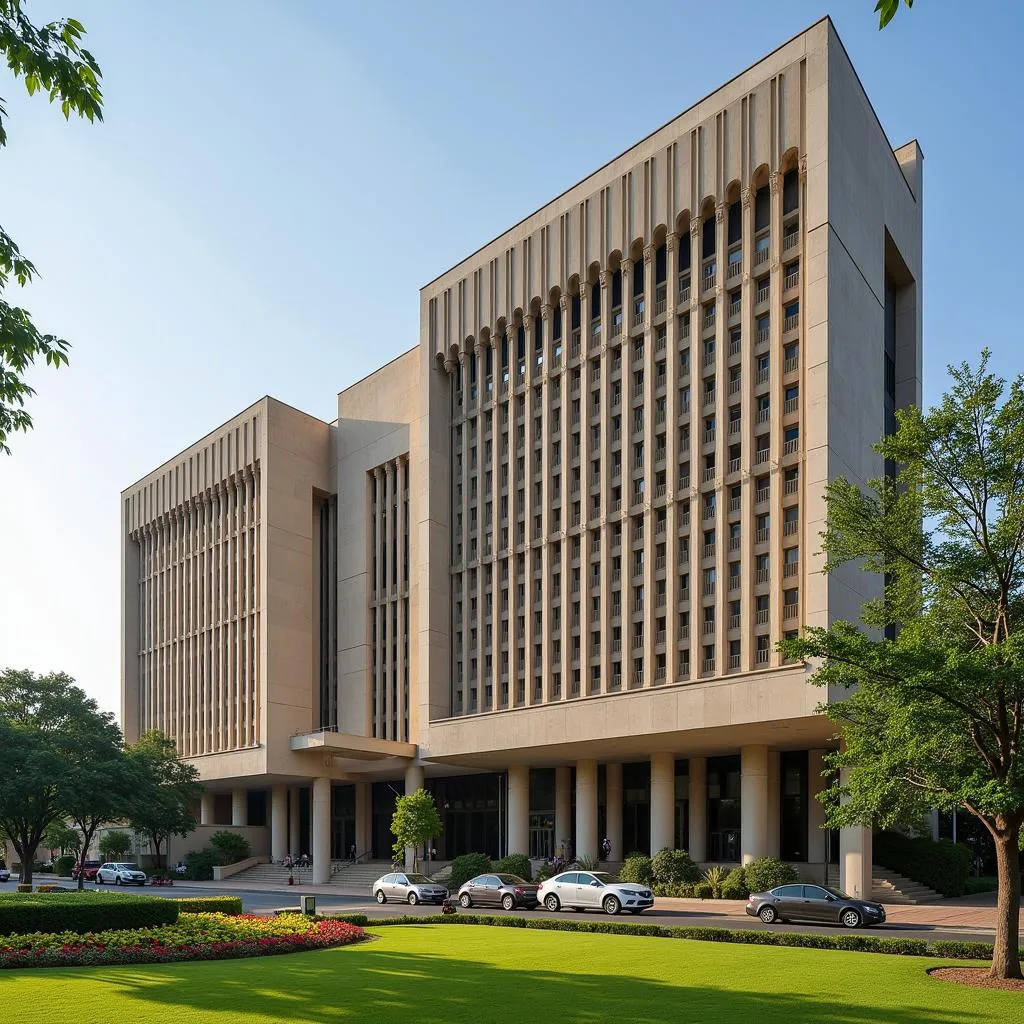African Countries Forming Union on Lines of European Union: Myth or Reality?
The concept of African countries forming a union similar to the European Union is a complex and multifaceted one, often sparking debate and speculation. While the idea of a unified Africa, economically and politically integrated, holds immense potential, the path to achieving such a union is fraught with challenges and uncertainties.
A United Africa: Exploring the Motivations
 African Leaders Discussing Integration
African Leaders Discussing Integration
The vision of a unified Africa is not new. It resonates deeply with the pan-African spirit ignited during the era of decolonization. Several key factors fuel the desire for greater integration amongst African nations:
- Economic Growth and Development: A unified market with harmonized trade policies and free movement of goods and people could unlock significant economic potential, boosting intra-African trade and attracting foreign investment.
- Political Stability and Security: A stronger, unified voice on the global stage could empower African nations to better address shared security threats, resolve conflicts, and advocate for their interests in international forums.
- Cultural Exchange and Unity: By fostering closer ties, African nations can celebrate their rich cultural diversity, promote understanding, and strengthen the sense of shared identity and pan-African solidarity.
Obstacles to Overcome: The Challenges of Integration
 Infrastructure Development in Africa
Infrastructure Development in Africa
While the aspirations for a “United States of Africa” are laudable, the road to achieving such a union is paved with significant hurdles:
- Political Will and Sovereignty: Relinquishing some degree of national sovereignty to a supranational body is a sensitive issue for many African countries. Fears of losing autonomy and control over national resources can hinder progress towards deeper integration.
- Economic Disparities: The vast economic differences between African countries pose a challenge. Mechanisms would need to be established to ensure equitable distribution of benefits and prevent wealthier nations from dominating the union.
- Infrastructure Deficit: Lack of adequate infrastructure, including transportation, energy, and communication networks, hampers trade and economic integration across the continent. Addressing this infrastructure gap is crucial for fostering closer ties.
- Peace and Security Concerns: Ongoing conflicts and political instability in some regions of Africa pose significant challenges to integration efforts. Establishing lasting peace and security is a prerequisite for meaningful economic and political union.
The African Union: A Stepping Stone?
 African Union Headquarters in Addis Ababa
African Union Headquarters in Addis Ababa
Established in 2002, the African Union (AU) represents a significant step towards greater continental integration. The AU aims to:
- Promote peace and security: Through conflict prevention, peacekeeping missions, and mediation efforts, the AU seeks to foster stability and security across the continent.
- Boost economic integration: The AU has spearheaded initiatives like the African Continental Free Trade Area (AfCFTA) to enhance intra-African trade and economic cooperation.
- Strengthen democracy and good governance: The AU promotes democratic principles, human rights, and good governance among its member states.
While the AU has made strides in advancing these goals, it still faces criticism for lacking effectiveness in certain areas and struggling to enforce its decisions.
The Path Forward: Gradual Integration and Pragmatic Solutions
Rather than aiming for a rapid and complete replication of the European Union model, a more realistic approach for Africa might involve:
- Focusing on regional integration: Strengthening existing regional economic communities (RECs), such as ECOWAS and SADC, can serve as building blocks for broader continental integration.
- Prioritizing peace and security: Addressing the root causes of conflict, promoting good governance, and strengthening regional security mechanisms are crucial for creating a conducive environment for integration.
- Investing in infrastructure development: Closing the infrastructure gap, particularly in transportation, energy, and communication, is essential for facilitating trade, movement of people, and economic growth.
- Promoting people-to-people connections: Encouraging cultural exchange programs, educational collaborations, and tourism can foster understanding and strengthen bonds between people across the continent.
A Vision for the Future: A More Integrated and Prosperous Africa
While a fully-fledged “United States of Africa” might remain a distant dream, the pursuit of greater integration holds immense potential for the continent. By addressing the challenges pragmatically, fostering regional cooperation, and prioritizing peace and development, Africa can move towards a future where its nations stand together, stronger and more prosperous, on the global stage.



